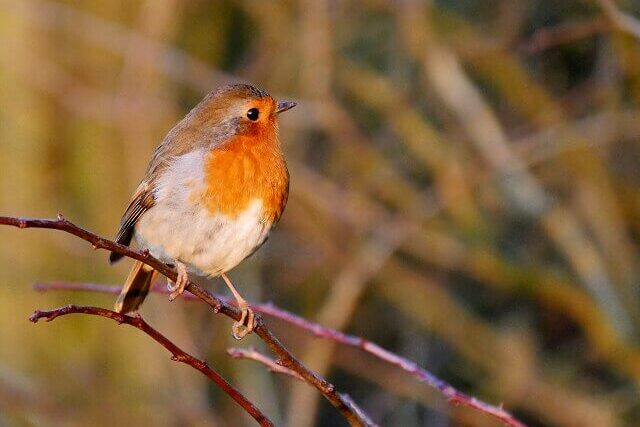
Recent data reveals a continued decline in bird populations across the UK, leading campaigners to warn that the government’s nature targets are at risk of being missed without significant policy changes.
Government statistics indicate that both short-term and long-term declines persist. The average abundance of 130 breeding bird species in 2021 was 12% lower than in 1970. While the majority of this decline occurred between the late 1970s and late 1980s due to significant drops in woodland and farmland bird populations, there was still a notable 5% decrease between 2015 and 2020.
During the period from 2015 to 2020, 24% of species experienced an increase, 28% showed minimal change, and 48% saw declines. Woodland birds fared particularly poorly, experiencing a 12% decrease between 2015 and 2020. Wildlife experts widely agree that habitat loss is the primary driver behind the decline in bird populations.
In 2021, the UK government passed the Environment Act, which sets a target to halt species decline by 2030. However, campaigners emphasise that substantial policy changes are necessary for the government to meet its legally binding targets. Without such reforms, the government’s commitments to protecting and preserving nature are at risk of falling short.
Richard Benwell, the CEO of Wildlife and Countryside Link, said: “As political parties turn their sights to the general election, they would do well to heed the warning written into today’s wild bird statistics. The decline of nature has continued, relentless and unabated, for decades.
“Meeting the legally binding target to stop wildlife losses by the end of the next parliament can’t be achieved with a legal tweak here, some spare change there. Serious, sustained investment, proper penalties for pollution, and action in every sphere of government must be the hallmarks of any nature-positive manifesto.”
Dr Richard Gregory, the RSPB’s head of science, said: “Everyone should be concerned that UK bird populations are continuing to decline as this is a crucial indicator of the condition of our environment and health of our natural world. We cannot keep publishing report after report charting the decline of the UK’s wildlife without UK governments delivering on their commitments to take urgent action to restore nature and halt wildlife decline.
“We are in a nature and climate emergency, and we need urgent action to keep common species common and save those already on the brink of being lost. This is not something on the distant horizon, but on our doorsteps.
“The UK is among the most nature-depleted countries in the world, bottom of the table compared to the rest of the G7, but we can change this if we begin to seriously address the drivers of wildlife decline in the UK.”
The state of the bird population is a good indicator for how other species are faring, which means that if they are declining, it is highly probable that other wildlife are too.
The Department for Environment, Food and Rural Affairs (Defra) said: “Bird populations have long been considered to provide a good indication of the broad state of wildlife in the UK. This is because they occupy a wide range of habitats and respond to environmental pressures that also operate on other groups of wildlife.
“In addition, there are considerable long-term data on trends in bird populations, allowing for comparison between trends in the short term and long term. Because they are a well-studied taxonomic group, drivers of change for birds are better understood than for other species groups, which enable better interpretation of any observed changes.”
A Defra spokesperson said: “Under the Environmental Improvement Plan, we set out clear steps to halt the decline in species abundance by 2030 and improve the status of wild birds and other species which play an important role in our ecosystems. We are already taking robust action to reduce key pressures on wild birds and improve their habitats. For example, our targeted species recovery efforts have helped to improve the conservation status of 96 priority species, including the curlew and bittern.”
——————————————————————————
At Natural World Fund, we are passionate about stopping the decline in our wildlife.
The declines in our wildlife is shocking and frightening. Without much more support, many of the animals we know and love will continue in their declines towards extinction.
When you help to restore a patch of degraded land through rewilding to forests, meadows, or wetlands, you have a massive impact on the biodiversity at a local level. You give animals a home and food that they otherwise would not have had, and it has a positive snowball effect for the food chain.
We are convinced that this is much better for the UK than growing lots of fast-growing coniferous trees, solely to remove carbon, that don’t actually help our animals to thrive.
This is why we stand for restoring nature in the UK through responsible rewilding. For us, it is the right thing to do. Let’s do what’s right for nature!
Support our work today at https://naturalworldfund.com/ and join in the solution!

